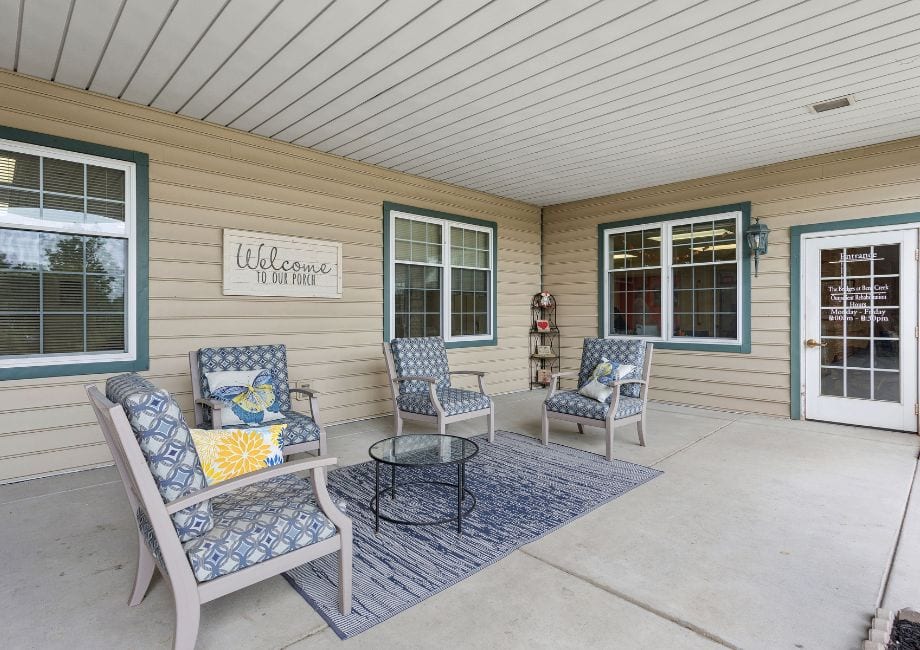Key Takeaways
- Many people with early-stage dementia can live alone safely with proper support and planning
- Building a strong network of family, friends, and professional services helps maintain independence
- Home safety modifications and technology tools support daily living with dementia
- Planning for future care needs while you’re still able helps maintain control over decisions
- Personal care and memory care communities provide additional support when living alone becomes unsafe
Living with dementia raises questions about the future, especially whether you can continue to live alone. Dementia can affect your independence, safety, and quality of life.
Understanding what dementia means for your daily functioning helps inform these important choices, while exploring our community resources can provide additional guidance.
Many people with early-stage dementia can live alone, particularly when they have proper support systems, safety measures, and realistic planning for changing needs.
The key is understanding your current abilities, building the right support network, and preparing for the future while you’re still able to make these important decisions.
Understanding Independent Living with Dementia
Early-Stage Dementia and Living Alone
Early-stage dementia often allows you to maintain many of your daily routines and live independently.
You might experience occasional memory lapses or need more time to complete familiar tasks, but that doesn’t mean you can’t live alone. Many older adults still manage their households, maintain relationships, and make decisions during this stage.
The progression of symptoms varies from person to person. Some people maintain their independence for years after diagnosis with support and accommodations.
Collaborating with healthcare providers and exploring personal care options can help determine which level of support might benefit you now and in the future.
Consider connecting with memory care resources early to learn about available support options in your community. Having this information helps you make informed decisions about your care as your needs change.
How Dementia Progression Affects Independence
Dementia affects everyone differently, so your experience may not match what you’ve heard from others. Some people notice changes in their ability to manage finances first, while others might struggle with cooking or remembering appointments.
Understanding your specific pattern of changes helps you adapt your living situation accordingly.
Regular check-ins with your healthcare team help you monitor changes and adjust your support systems, so you can stay ahead of challenges rather than reacting to problems after they occur.
When Should Someone with Dementia Not Live Alone?
Safety becomes the primary concern when determining if living alone remains appropriate. If you’re experiencing frequent falls, forgetting to turn off appliances, getting lost in familiar places, or having trouble recognizing dangerous situations, additional support becomes necessary.
Other warning signs include difficulty managing medications, neglecting personal hygiene, or becoming confused about time and place regularly. These changes don’t reflect personal failure—they’re part of how dementia affects daily functioning.
When these situations arise, it’s time to consider additional support services or alternative living arrangements. The goal is to maintain your safety while preserving independence.
Building a Strong Support Network

Family and Friends as Your Foundation
Your existing relationships form the cornerstone of successful independent living with dementia.
Family members and close friends who understand your situation can provide both practical help and emotional support. They might help with grocery shopping, transportation, or simply check in regularly to see how you’re doing.
Open communication with your loved ones helps them understand how they can support you without taking over.
Connecting with Neighbors and Community Members
Building relationships with neighbors and community groups creates a natural support network for social activities or support during emergencies.
Community groups, religious organizations, and senior centers offer ways to stay connected, find support, access resources, and prevent isolation.
Professional Support Services Available
Many professional services can help you maintain your independence at home:
- Home health aides help with personal care tasks
- Housekeeping services manage cleaning and maintenance
- Meal delivery services support proper nutrition
- Adult day programs offer social interaction and supervised activities
- Transportation services help you get to appointments and errands
Care managers coordinate services, act as advocates, and help resolve problems. Respite care options can also provide temporary relief for family members while helping you receive appropriate support.
Making Your Home Safer and More Manageable
Simple Safety Modifications for Independence
Small changes around your home can make a significant difference in your safety and confidence:
- Install grab bars in bathrooms
- Remove tripping hazards, like loose rugs
- Improve lighting throughout your house
- Label cabinets and drawers
- Install automatic shut-off devices for appliances
Technology Tools That Support Daily Living
Modern technology offers many tools that support independent living with dementia. Medication reminder systems help you take prescriptions correctly. Smart home devices can control lighting, temperature, and security systems with simple voice commands.
Keep technology simple and focus on devices that address your specific needs. Too many new gadgets at once can become overwhelming rather than helpful.
Emergency Preparedness and Alert Systems
Having a clear emergency plan gives you and your family confidence in your ability to live independently. Keep important phone numbers and documents easily accessible, and make sure neighbors or family members have spare keys to your home.
Daily Living Strategies for Independence
Organizing Your Day and Managing Medications
Structure helps compensate for memory changes while maintaining your independence. You can help support this structure with visual cues and helpful reminder techniques:
- Create consistent daily routines, from meal times to grooming to your bedtime routine
- Use calendars or planners to keep track of appointments and activities
- Use pill organizers, automatic dispensers, and reminder alarms for medications
Meal Planning and Nutrition Support
Proper nutrition supports physical health and cognitive function. Simple meal planning strategies include preparing larger portions and freezing individual servings, keeping easy-to-prepare foods on hand, and establishing regular meal times.
Meal delivery services provide nutritious options when cooking becomes challenging. Many services offer senior-specific menus with appropriate portion sizes and dietary accommodations.
Planning for Future Care Needs
Legal and Financial Planning While You Can
Taking care of legal and financial planning while you’re still able to make these decisions protects your interests and reduces stress for your family.
Work with an attorney who understands dementia-related legal issues to confirm your documents reflect your wishes and meet your state’s requirements. Review your financial accounts and consider simplifying banking arrangements, such as automatic bill payments.
Exploring Senior Living and Memory Care Options
Learning about senior living options while you’re still independent helps you make informed decisions if your needs change. Touring communities and understanding available services help you set realistic expectations for different levels of care.
Memory care communities specialize in supporting people with dementia while promoting independence when possible. These programs provide secure environments with programming designed specifically for people experiencing memory changes.
Making these decisions proactively, rather than in crises, allows you to choose options that align with your values and preferences.
Creating Your Advance Care Plan
An advance care plan records your healthcare and living wishes for when you can’t communicate them, guiding family and providers.
Include specific medical treatment preferences, living arrangements, and personal values to guide care decisions. Update documents as your preferences or circumstances change.
Share copies of your advance care plan with family members, healthcare providers, and legal representatives.
Living Well with Dementia Starts Here
Living alone with dementia is challenging, but many older adults maintain independence with support and planning. Creating safety measures, building connections, and preparing for changes allow longer stays at home.
Accepting help isn’t giving up independence but making smart choices to stay safe and in control.
At The Bridges at Bent Creek, we understand that the decision about where and how to live as your needs change is deeply personal.
Our personal care and memory care services in Mechanicsburg provide supportive options when living alone becomes challenging, while still respecting your independence and individual preferences.
Schedule a tour of our community today to learn more about how we can support you or your loved one.










